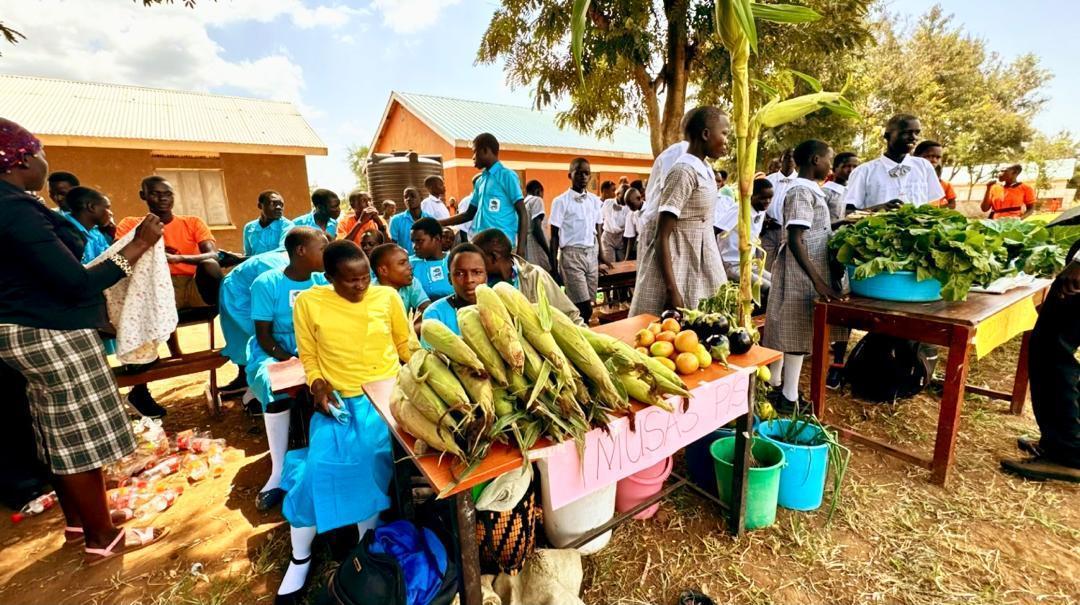Africa-Press – Uganda. A transformative school farming initiative by Save the Children Uganda is helping combat malnutrition, improve school attendance, and empower learners in Karamoja with practical farming skills.
Launched under the Integrated Education Project for Karamoja on November 1, 2022, the project is currently being implemented in 10 schools across Moroto District.
It introduces climate-smart agriculture techniques to help schools grow their own food while conserving the environment.
Through the project, learners—particularly members of Junior Farmer Field Schools (JFFS)—have been trained in modern agronomic practices with technical support from the National Agricultural Research Organisation (NARO).
The training covers sustainable farming methods that can withstand the harsh climate of the region.
Joseph Wandera, the regional program manager for Save the Children, said the goal is to make schools self-reliant and food secure.
“We train and equip schools to conduct climate-smart agriculture. The idea is to make school gardens not just a source of food but a learning ground for practical life skills,” he said.
Schools have been provided with farming tools and seeds to grow crops like vegetables and cereals. Learners are actively involved in daily farming activities, such as planting, watering, and harvesting.
Josephine Alimo, an agriculture teacher at Loputuk Primary School, said they are embracing organic farming to ensure safe, nutritious food.
“We use organic manure and organic pesticides to ensure the produce is healthy for consumption. We water daily and also practice mulching to conserve water,” she explained.
The use of innovative techniques like sack gardens and box gardens has helped schools maximize limited space and water, leading to bumper harvests. Some of the surplus produce is sold to support school needs.
Benadet Longora, a Primary Six pupil at Musupo Primary School, shared how the project has made a difference.
“We sell part of the vegetables to buy scholastic materials like books and pens,” she said.
Local education authorities have also praised the initiative for its positive impact on child welfare.
Moses Lokwii, the Senior Education Officer for Moroto, said the project is a timely solution to the region’s nutrition crisis.
“This project is helping to solve the rampant malnutrition in Karamoja. Children are now feeding better, learning more, and staying in school,” he noted.
The initiative has become a model for school-community cooperation. During Open Days, schools showcase their harvests and innovations to parents, local leaders, and district officials.
Outstanding students are rewarded, further encouraging participation and excellence.
By integrating agriculture into education, Save the Children’s project is nurturing a generation that not only learns in the classroom but also grows in the garden.
For More News And Analysis About Uganda Follow Africa-Press






